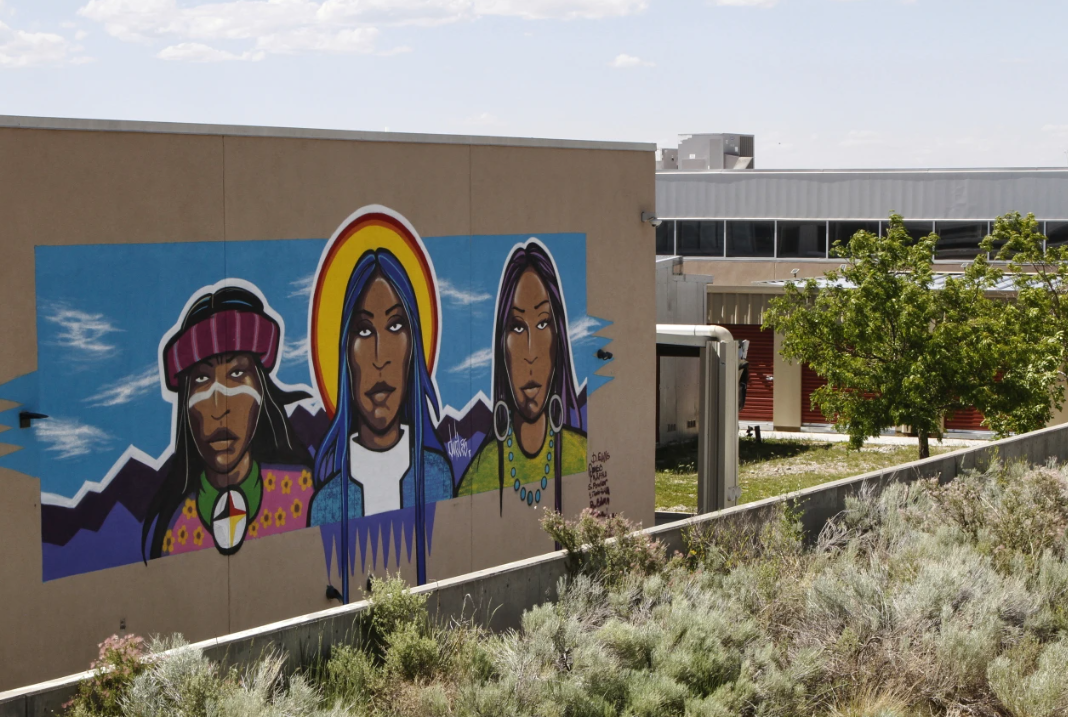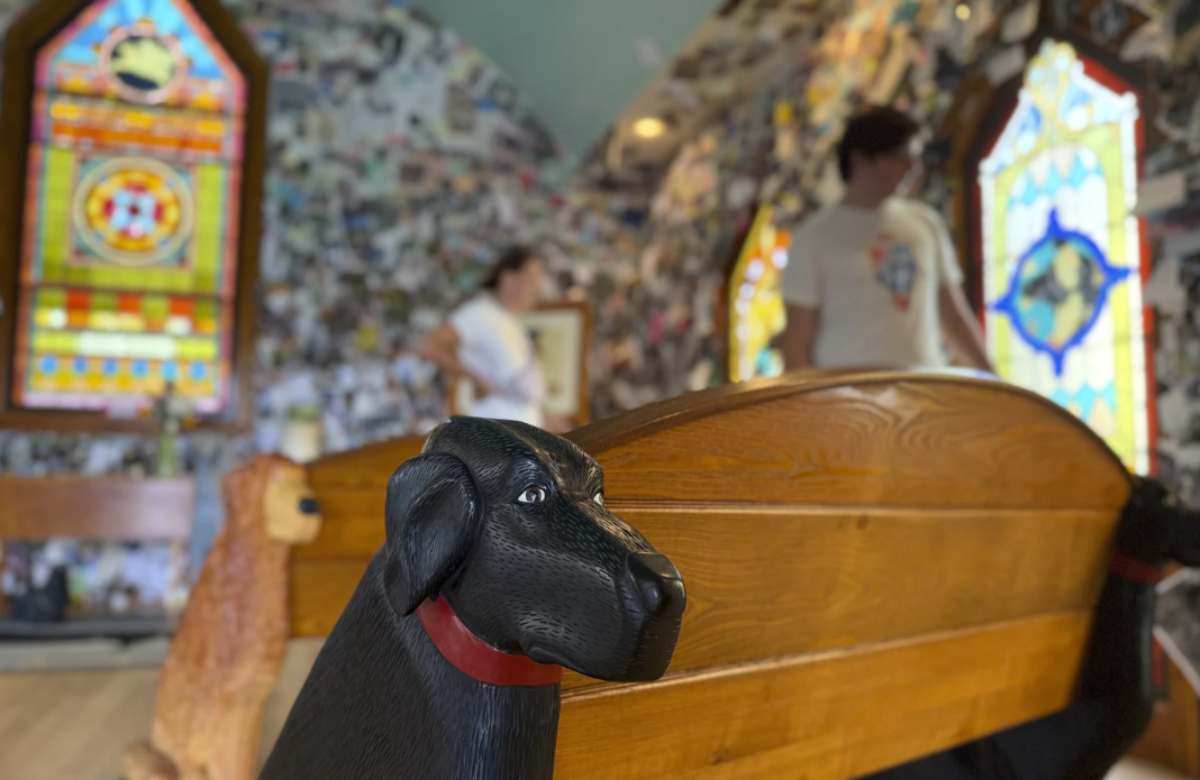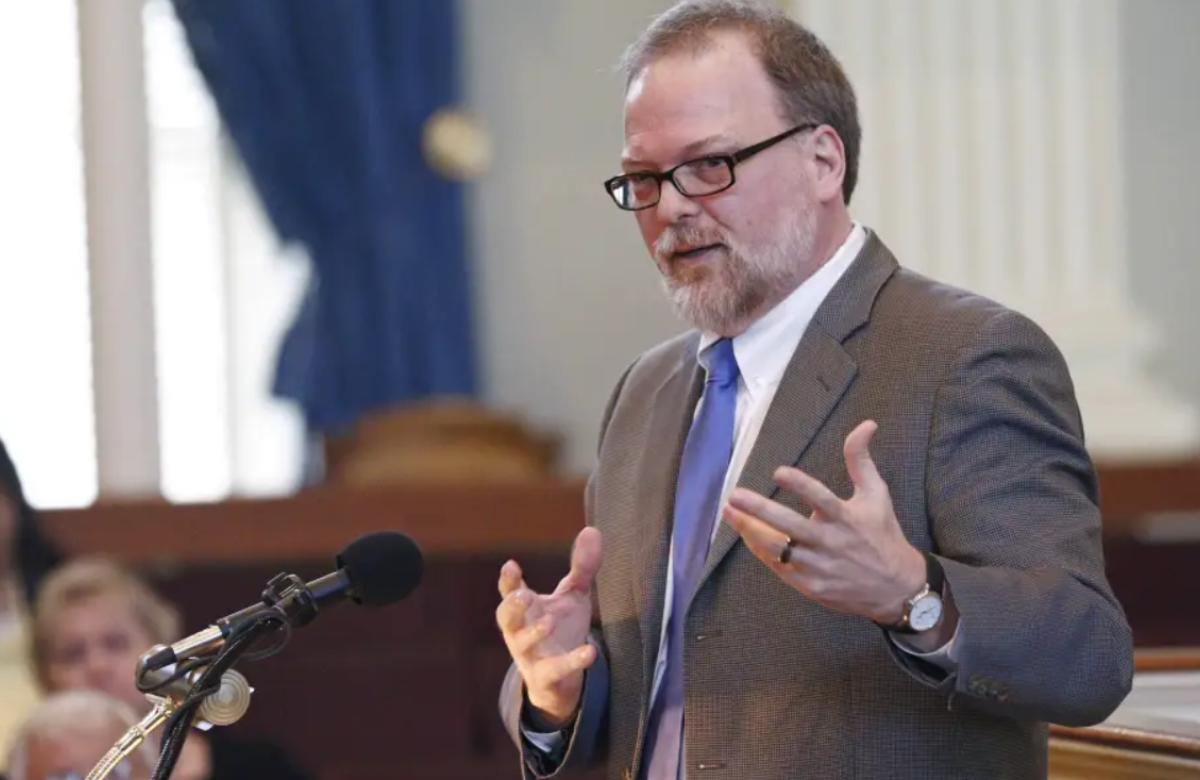President Donald Trump’s latest budget proposal includes deep cuts to tribal colleges and universities, including a plan to completely eliminate federal funding for the Institute of American Indian Arts (IAIA), the country’s only congressionally chartered fine arts college devoted to contemporary Native American and Alaska Native arts.
If enacted by Congress, the budget—set to take effect in October—would zero out the IAIA’s annual $13 million in federal appropriations. This would mark the first time in nearly four decades that the Santa Fe-based school would operate without federal support, according to its president, Robert Martin.
“You can’t wipe out 63 years of our history and what we’ve accomplished with one budget,” Martin said. “I just can’t understand or comprehend why they would do something like this.”
Founded in 1962, IAIA has been a cornerstone in the development of Native art and culture. Its alumni include U.S. Poet Laureate Joy Harjo, painter T.C. Cannon, and novelist Tommy Orange. The school provides affordable higher education and is a key institution for many Indigenous artists and culture bearers.
Martin noted that he’s spoken with members of both parties in Congress who have voiced support for maintaining the school’s funding, including staff from the office of Rep. Tom Cole—a Chickasaw Nation citizen, House Appropriations Committee Chair, and former IAIA trustee. However, he remains concerned that the proposal may negatively impact morale among students and staff.
Breana Brave Heart, a junior majoring in arts and business, said the proposal was a shock. “Will I be able to continue my education at IAIA with these budget cuts?” she asked. Brave Heart has begun organizing fellow students to contact lawmakers. “IAIA is under attack,” she said, “and I need other students to know this.”
Martin also criticized what he described as the administration’s broad effort to dismantle diversity, equity, and inclusion (DEI) programs, saying that trust responsibilities and treaty rights to tribal nations are being undermined. “We’re not just a racial category—we’re a political status because of treaties,” he said. “We’re easily labeled by this administration as ‘woke,’ but that misses the point entirely.”
Sen. Ben Ray Luján of New Mexico called the proposed cuts another example of the federal government turning its back on Native communities. “As a member of the Senate Indian Affairs Committee, I remain committed to keeping IAIA fully funded and will continue working with appropriators and the New Mexico delegation to ensure its future,” he said.
The White House has not issued a comment on the proposal.
The overall federal budget proposal includes roughly $3.75 trillion in tax cuts, largely an extension of the 2017 tax law and new temporary reductions Trump championed on the campaign trail. These tax breaks would be offset by approximately $1.3 trillion in cuts to programs like Medicaid and food assistance.
An Interior Department memo issued in January called for ending DEI programs and “gender ideology extremism,” but noted that efforts to dismantle such programs should not interfere with federal trust obligations to tribal nations.
Still, earlier this year, layoffs hit two other congressionally chartered tribal colleges—the Southwestern Indian Polytechnic Institute in Albuquerque and Haskell Indian Nations University in Kansas—as part of a broader push to downsize the federal workforce. A March lawsuit revealed that some employees were rehired, only to be told the positions might be temporary and subject to additional layoffs.
Ahniwake Rose, president of the American Indian Higher Education Consortium, which represents over 30 Tribal Colleges and Universities (TCUs), said the cuts reflect deeper policy values. “It shows what a president’s values and priorities are,” she said. “It’s been hard for our staff, students, and faculty to see that the administration may not prioritize tribal colleges.”
The Interior Department has proposed cutting more than 80% of funding for the Bureau of Indian Education’s (BIE) postsecondary programs—funds that TCUs depend on. Most TCUs provide tuition-free education to tribal citizens, and their existence is tied to the federal government’s legal and moral obligations through historic treaties.
Those treaties established rights such as education, healthcare, and land access—rights that were later delegated to agencies like the BIE. Upholding those obligations remains a matter of trust and responsibility.
The Interior Department has not responded to inquiries about the proposed funding reductions.















